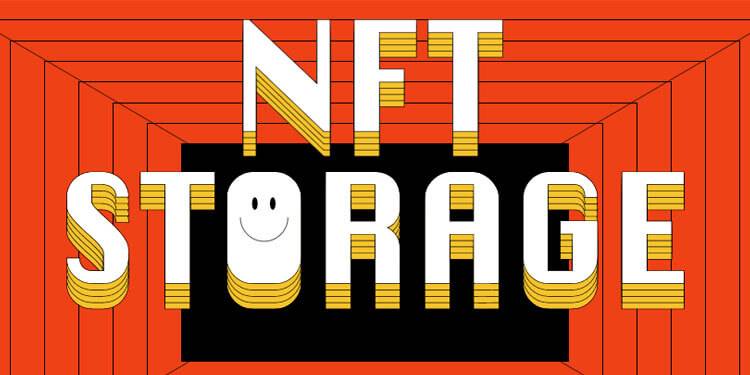NFT Storage – Service built on Filecoin and IPFS protects asset integrity through decentralized persistence and content addressing
Projected to reach a market capitalization of $710 Million in 2021, the non-fungible token (NFT) market is witnessing a significant surge, however, the growing library of new assets being minted as NFTs are at risk of manipulation or loss. Today marks the launch of NFT.Storage, a service backed by Protocol Labs and Pinata specifically for storing NFT data.
What is NFT Storage?
NFT Storage is a service in BETA that allows storing off chain NFTs on IPFS and Filecoin.
NFT.Storage lets developers store NFT data on decentralized networks easily, securely, and for free. With just a few lines of code, anyone can leverage the power of IPFS and Filecoin to ensure the persistence of their NFT data.
Commenting on the launch, Mikeal Rogers, Engineering Manager at Protocol Labs, said, “NFTs are part of humanity’s cultural legacy – and designing their data for long-term accessibility is crucial. Content addressing and distributed storage networks ensure that digital artwork, basketball cards, and virtual real estate are guaranteed to stay secure and available long-term. NFT.Storage makes it completely frictionless to mint NFTs following best practices through resilient persistence on IPFS and Filecoin.”
How are NFTs stored? How does NFT Storage work?
NFT.Storage uses IPFS to create digital fingerprints for all new NFTs, which universally reference the content regardless of how or where it is stored. Using these fingerprints to reference NFT assets and metadata prevents problems like NFT assets disappearing or getting “rug pulled”. NFT.Storage uses Filecoin to preserve NFT assets and metadata with dozens of global storage providers to ensure that the content is publicly accessible without a central point of failure for the long term. Filecoin also provides publicly verifiable proofs that content is being stored over time, so anyone can verify the data’s integrity and availability.
NFT.Storage is designed to support NFT applications like Palm, a new NFT protocol being brought to market by Protocol Labs and ConsenSys, which also relies on IPFS and Filecoin for decentralized storage. The Palm network, which will operate on its own environmentally-friendly Ethereum sidechain, saw world-renowned artist Damien Hirst releasing a collection entitled ‘The Currency Project’ as part of the launch.
About Filecoin
Filecoin, the world’s largest decentralized storage network, also powers the VideoCoin marketplace. Filecoin recently surpassed 4 billion gigabytes in storage capacity, making the network capable of storing over 1.2 billion 1080p high-resolution movie files. VideoCoin integrated with Filecoin to protect the provenance of their videos with NFTs, addressing pain points around video veracity.

Founder Dinis Guarda
IntelligentHQ Your New Business Network.
IntelligentHQ is a Business network and an expert source for finance, capital markets and intelligence for thousands of global business professionals, startups, and companies.
We exist at the point of intersection between technology, social media, finance and innovation.
IntelligentHQ leverages innovation and scale of social digital technology, analytics, news, and distribution to create an unparalleled, full digital medium and social business networks spectrum.
IntelligentHQ is working hard, to become a trusted, and indispensable source of business news and analytics, within financial services and its associated supply chains and ecosystems






























